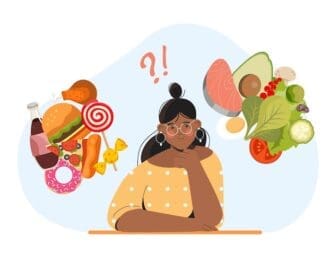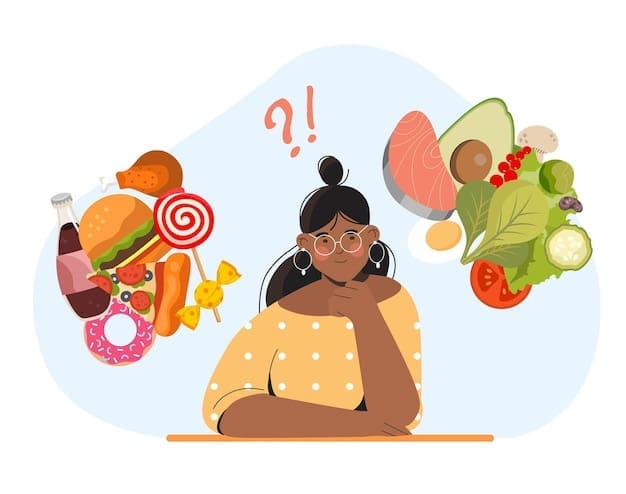The Anxiety-Diet Connection: How What You Eat Can Calm or Fuel Your Nerves
An increasing body of scientific evidence reveals a powerful, two-way relationship between what we eat and how we feel, fundamentally changing how experts and individuals approach mental wellness. For the millions of people who experience anxiety, this connection is particularly profound, as specific foods and dietary patterns can either exacerbate symptoms of unease, worry, and panic or help foster a state of calm. This link is primarily governed by the gut-brain axis, a complex communication network that ensures your digestive system and central nervous system are in constant dialogue, influencing everything from mood and stress responses to cognitive function. Understanding this connection empowers individuals to use nutrition as a key tool in their mental health toolkit.
The Gut-Brain Axis: Your Second Brain’s Influence on Mood
For decades, anxiety was viewed almost exclusively as a psychological phenomenon—a product of brain chemistry, genetics, and life experiences. While these factors remain critically important, we now understand that the gut plays a co-starring role. Often referred to as the “second brain,” the gut contains hundreds of millions of neurons and is home to a vast ecosystem of trillions of microorganisms known as the gut microbiome.
This microbiome is not a passive bystander; it actively produces and helps regulate many of the same neurotransmitters that determine our mental state. For instance, an estimated 95% of the body’s serotonin, a key neurotransmitter for feelings of happiness and well-being, is produced in the gut. When the gut microbiome is healthy and diverse, it supports balanced neurotransmitter production.
Conversely, a state of imbalance, known as dysbiosis, can disrupt this delicate process. This imbalance can be caused by a diet high in processed foods, sugar, and unhealthy fats, leading to inflammation. This inflammation isn’t just confined to the gut; it can send stress signals to the brain via the vagus nerve, contributing to feelings of anxiety and low mood. In essence, an inflamed gut can lead to an inflamed, and anxious, brain.
Foods and Habits That Can Worsen Anxiety
While no single food is a direct cause of an anxiety disorder, certain dietary components are well-known for their ability to trigger or worsen symptoms. Recognizing these culprits is the first step toward building a more anxiety-friendly diet.
Sugar and Refined Carbohydrates
Foods high in added sugars and refined carbohydrates—such as white bread, pastries, sugary drinks, and candy—cause rapid spikes in blood sugar. Your body responds by releasing a flood of insulin to bring levels back down, often causing a subsequent “crash.” This rollercoaster of blood sugar levels can mimic the physical symptoms of a panic attack, including shakiness, dizziness, and heart palpitations, thereby triggering a cycle of anxiety.
Furthermore, a diet high in sugar promotes inflammation and oxidative stress throughout the body and brain. This chronic, low-grade inflammation is increasingly linked to mood disorders, including anxiety and depression, by disrupting the delicate chemical balance required for stable mental health.
Caffeine
For many, a morning coffee is a non-negotiable ritual. However, for those prone to anxiety, caffeine can be a significant trigger. As a powerful stimulant, caffeine activates the “fight or flight” response by increasing adrenaline and cortisol levels. This can lead to a racing heart, restlessness, and jitters—sensations that are nearly identical to those of anxiety itself.
Caffeine is also known to disrupt sleep, and poor sleep is a major contributor to heightened anxiety levels. If you struggle with anxiety, consider reducing your intake or switching to decaffeinated options to see if your symptoms improve.
Alcohol
It’s common for people to reach for a glass of wine or beer to “take the edge off” after a stressful day. While alcohol can have a temporary calming effect by depressing the central nervous system, this relief is short-lived. As the alcohol wears off, the brain rebounds by producing a surge of stimulating chemicals, which can lead to heightened anxiety, irritability, and poor sleep in the hours and day that follow.
This phenomenon, sometimes dubbed “hangxiety,” disrupts the balance of neurotransmitters like serotonin and GABA, which are crucial for mood regulation. Over time, relying on alcohol to manage anxiety can create a vicious cycle that ultimately worsens the condition.
Processed Foods
Highly processed foods, from fast food to packaged snacks, are typically low in essential nutrients and high in ingredients that promote inflammation. These include trans fats, omega-6 fatty acids, and a host of artificial additives, preservatives, and flavorings. This pro-inflammatory profile can negatively impact the gut microbiome and, by extension, the brain, contributing to a state of mental unease.
Building an Anti-Anxiety Diet: Nutrients That Nurture Calm
Just as some foods can fuel anxiety, others can provide the building blocks your brain and gut need to foster resilience and calm. Focusing on a whole-foods diet rich in specific nutrients can be a powerful strategy for managing symptoms.
Complex Carbohydrates
Unlike their refined counterparts, complex carbohydrates found in foods like oats, quinoa, brown rice, and sweet potatoes are digested slowly. This provides a steady supply of glucose to the brain, preventing the blood sugar spikes and crashes that can trigger anxiety. They also boost levels of serotonin, the “feel-good” neurotransmitter, promoting a sense of well-being.
Omega-3 Fatty Acids
Omega-3s, found abundantly in fatty fish like salmon, mackerel, and sardines, as well as in walnuts and flaxseeds, are vital for brain health. These healthy fats are powerful anti-inflammatory agents and are integral components of brain cell membranes. Research suggests that adequate intake of omega-3s can help reduce inflammation associated with anxiety and may lower the body’s production of stress chemicals like cortisol.
Probiotic and Prebiotic Foods
To support a healthy gut-brain axis, it is essential to nurture your microbiome. Probiotic-rich foods introduce beneficial bacteria directly into your gut. Excellent sources include yogurt with live active cultures, kefir, kimchi, sauerkraut, and kombucha.
Prebiotic foods act as fertilizer for these good bacteria. Rich in fiber, they are found in foods like garlic, onions, bananas, asparagus, and whole grains. A diet rich in both helps create a diverse and resilient gut ecosystem, which is linked to better mental health outcomes.
Magnesium and Zinc
Magnesium is often called nature’s tranquilizer for its role in regulating the body’s stress-response system. It helps maintain healthy levels of the calming neurotransmitter GABA and controls the release of stress hormones. Excellent sources include leafy greens like spinach, almonds, avocados, and dark chocolate.
Zinc also plays a crucial role in modulating the body’s response to stress. This mineral is found in oysters, cashews, chickpeas, and egg yolks.
The Importance of Hydration and Meal Timing
Beyond specific foods, how and when you eat matters. Even mild dehydration can impact your mood, increase perceptions of anxiety, and impair concentration. Aim to drink water consistently throughout the day rather than waiting until you feel thirsty.
Skipping meals can also be detrimental, leading to a drop in blood sugar (hypoglycemia). The symptoms of hypoglycemia—dizziness, irritability, and a racing heart—can easily be mistaken for an anxiety attack. Eating regular, balanced meals throughout the day helps maintain stable blood sugar and energy levels, providing a foundation for a calmer mind.
A Holistic Approach to Managing Anxiety
While nutrition is a powerful lever for influencing mental health, it is not a cure-all. Diet is one piece of a larger, holistic puzzle. For individuals living with an anxiety disorder, the most effective approach combines dietary modifications with evidence-based treatments like cognitive-behavioral therapy (CBT), mindfulness, regular physical exercise, and, when appropriate, medication. By viewing your diet as an active and empowering component of your mental health strategy, you can provide your body and brain with the essential resources they need to navigate the challenges of anxiety more effectively.












